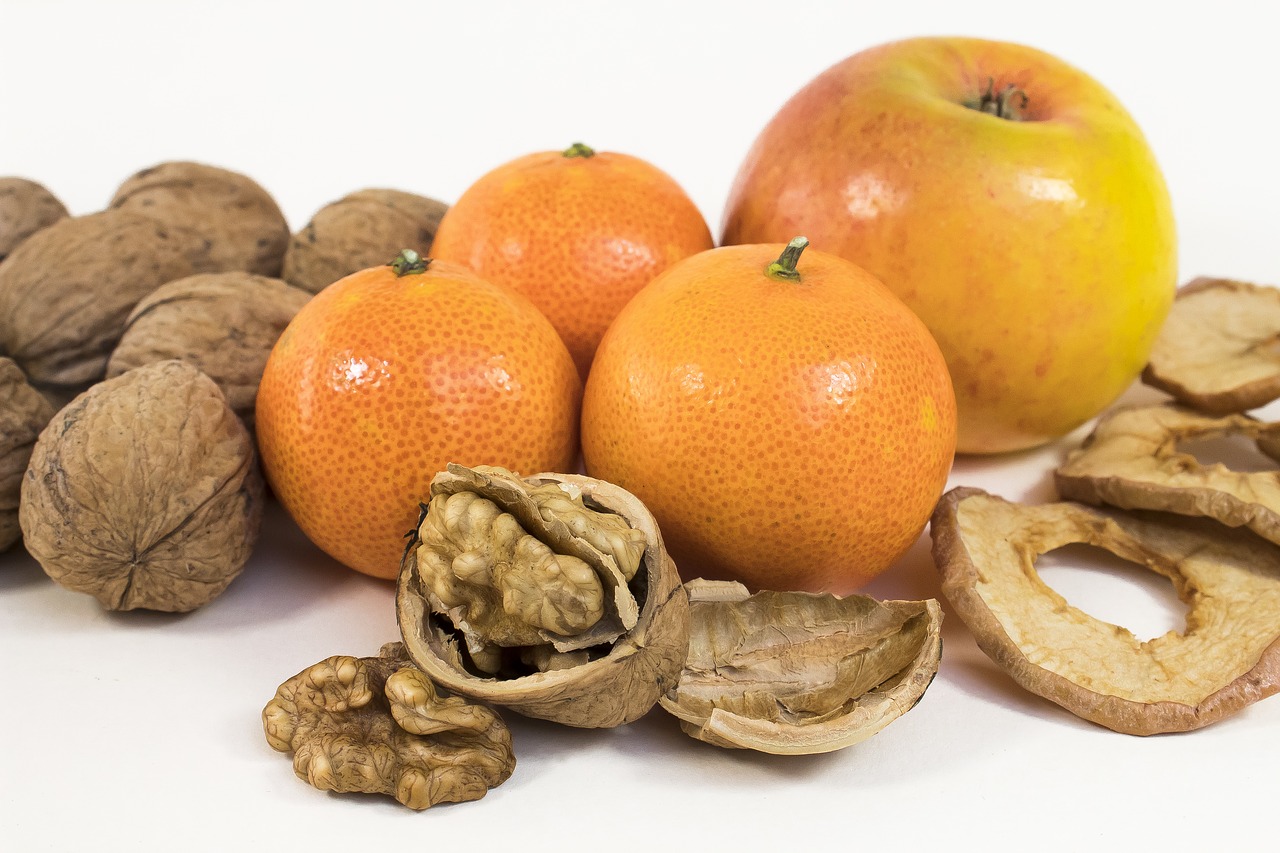1) Sea fish (mackerel, sardine, anchovy, herring, salmon, etc.), very rich in Omega 3 fatty acids
2) Walnut – Omega 3, brain-nourishing vitamin E and antioxidants. Consumed as a snack, 4-5 at a time, they should be quality choices: they must not have the shell too light (it would mean that they have been chemically bleached).
3) Broccoli – rich in vitamin C, an antioxidant that strengthens blood vessels and improves their elasticity.
4) Tomato – the antioxidant lycopene is valuable for brain functioning, and for skin health.
5) Turmeric – an oriental spice with vaunted and multiple virtues, contains anti-inflammatories also useful for the brain, and with a contrasting effect on arteriosclerosis
6) Citrus fruits – (orange, grapefruit, lemon, etc.) can work as blood thinners and rich in vitamin C.
7) Eggs – The yolk contains choline, which is necessary for cell membranes and for the transmission of nerve impulses. The yolk is rich in vitamin E
8) Berries – thanks to flavonoids & plenty of antioxidants, they are useful for preserving brain function and improving vitamin C and E, the structure of blood vessels
9) Water – Even a slight dehydration of a few hours can decrease the brain’s abilities, including those of learning.
10) Green tea – excellent source of antioxidants and inhibits acetylcholinesterase, an enzyme that damages acetylcholine, a neurotransmitter involved in memory. A couple of cups of green tea a day is enough (strictly without sugar or sweeteners)


1 comment
Great, but it’s very difficult for me to cook with them because my kids are so special when it comes to eating.